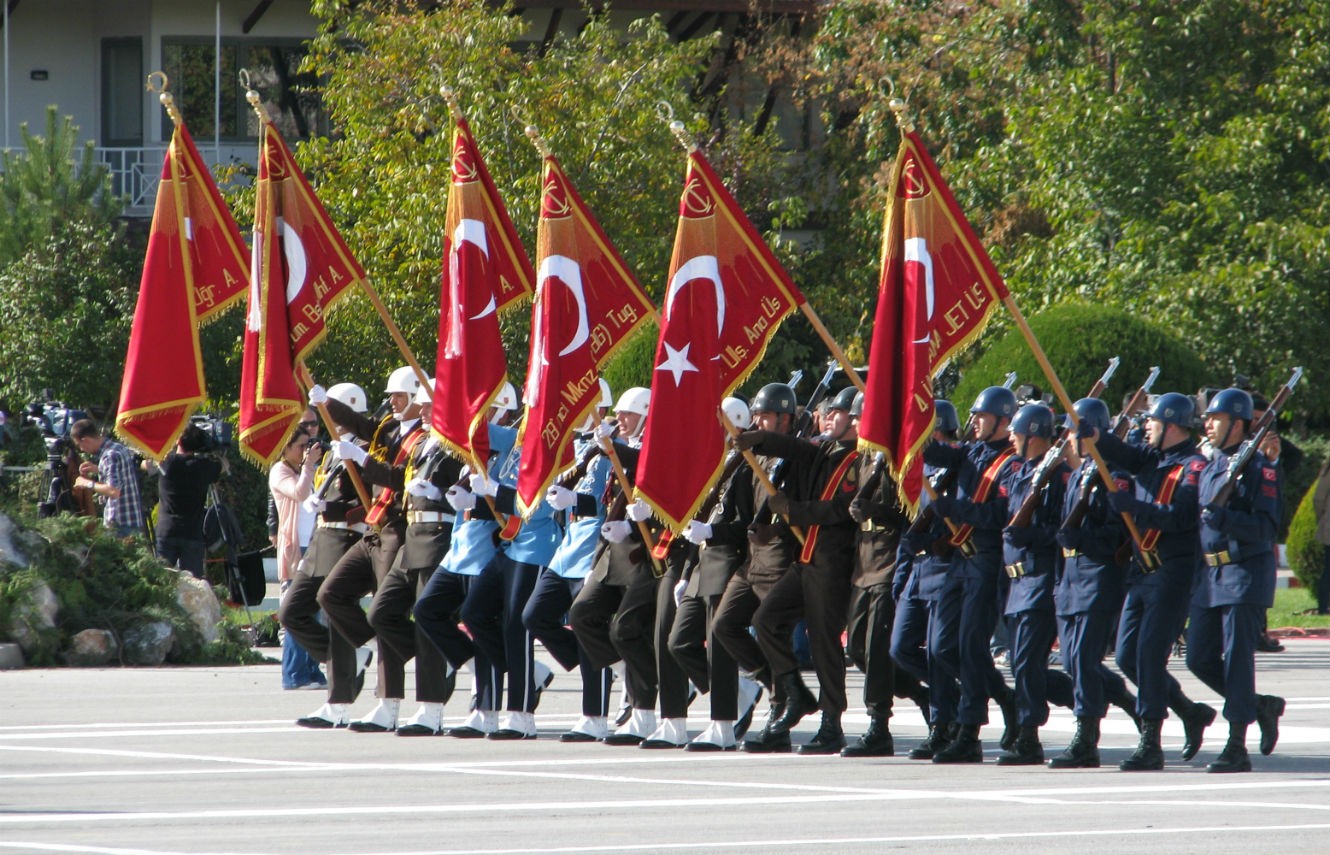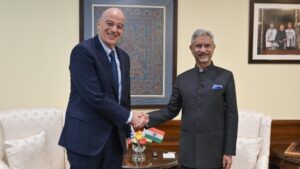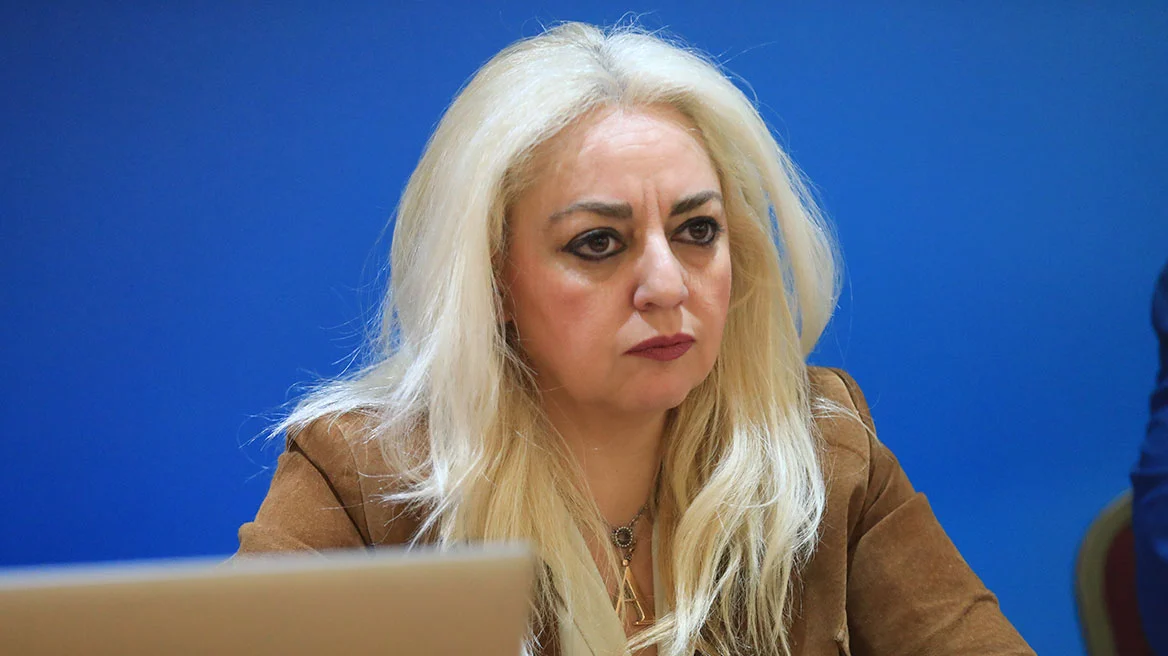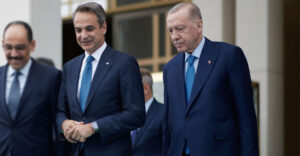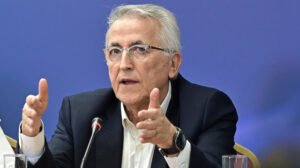Turkey’s relations with its Western allies, in a downward spiral since 2013, are at a breaking point. Ankara not only accuses Washington of plotting last year’s abortive coup, but also blames it for arming and supporting Kurdish rebels that it sees as an existential threat. Bitter diplomatic spats unfold with one European country after another. President Recep Tayyip Erdogan, who has already demoted Turkey’s strategic relations with Western partners to transactional ones, appears to be taking a new stance of outright hostility. His aggression is ideological, and here to stay.
Last month, a weeklong showdown between Berlin and Ankara culminated in the Germans asking Brussels to suspend negotiations to modernize Turkey’s Customs Union deal with the European Union. Erdogan, after ranting about Germany’s Nazi history, accused German businesses of sponsoring terror against his country. Days earlier, Turkey’s semi-official Anadolu Agency produced a map exposing secret U.S. military positions in Syria, and Erdogan now seeks to buy Russian S-400 missile defense batteries for Turkey, a NATO member.
Turkey’s foreign policy today stands in stark contrast to the republic’s traditional orientation. The Turkey that Erdogan’s Islamist-rooted Justice and Development Party (AKP) came to rule in 2002 had a long history of alliance with the Western world. When Mustafa Kemal Ataturk founded the modern Turkish republic in 1923, he willed his country to join the European family of nations, bringing its economic and human development on par with the continent. At the end of World War II, Ankara turned decisively toward the transatlantic world as a safe haven against Soviet expansionism, joining NATO as early as 1952. Turkey entered into an association agreement with the European Economic Community in 1963, with an eye toward full accession to the emerging supranational union in Europe. Ankara then signed a customs deal with the European Union in 1995, and formal negotiations for accession started in 2005, under the budding AKP.
Those days are now far behind, and many seem puzzled by the change. But Turkey’s reorientation has been for a long time in the making.
Much like his instrumental approach to Turkish democracy and the so-called Kurdish peace process, Erdogan saw the E.U. accession process as tactical and kept it alive as long as it was useful in eliminating his adversaries at home. Through his rule, Erdogan chose to challenge the Western liberal order, rather than thrive in it. He praised Hamas and cozied up to Iran’s notorious Mahmoud Ahmadinejad. He talked of dropping the European Union for the Shanghai Cooperation Organization and toyed with buying missile defenses from a U.S.-sanctioned Chinese company. He tear-gassed and spray-cannoned Turkish citizens and rained rubber bullets on them. Erdogan also became the world’s top jailer of journalists. For months, if not years, he let the Islamic State grow along Turkey’s border.
In the last few years, Western officials have repeatedly and increasingly had to bring up Ankara’s human rights violations and Erdogan’s repetitive distortions of Turkish law. As America, dismayed by Ankara’s nonchalance towards the Islamic State, turned to its only other viable partner against the jihadists, the Syrian Kurds, Erdogan botched his peace talks with those Kurds’ Turkish counterparts. After a year of negotiations with Washington over access to Turkey’s Incirlik airbase, a NATO facility, for the anti-Islamic State fight, Ankara finally allowed access the same day it launched war on Kurdish militants in Turkey, Iraq, and Syria. Western capitals began to question Turkey’s membership in NATO.
The March 2016 migration deal, whereby the European Union paid Turkey to keep the Syrian refugee flow in check, epitomized the new Turkish-Western relationship. Strategic ties, once based on values, the Copenhagen criteria, and accession, had become unmistakably transactional.
But last summer’s coup attempt, instigated by a group of rogue soldiers, opened an even darker chapter in Turkey’s relations with the West.
Soon after the putsch failed, Erdogan revealed the plot’s alleged mastermind as Turkish cleric Fethullah Gulen, who has lived in the United States since 1999. Turkey’s pro-government media wasted no time pinning the blame, alongside Gulen’s network and the putschists themselves, on various U.S. “spies” — a coalition of academics, think tankers, and former government officials. Europe has similarly come under fire for refusing to immediately deport suspected putschists who managed to escape the country. A year on, most Turkish people have convicted Gulen of the plot in their minds, and many demand the death penalty. The desire for vengeance extends to the United States, which is viewed as the willful host to Turkey’s national enemy — as well as the top sponsor of Syrian Kurds, allegedly Turkey’s top security threat, despite their repeated petitions to cooperate with Ankara. A recent poll found that 72 percent of Turkish citizens view the United States as a top security threat, up from 44 percent in 2013.
Armed with state of emergency powers, Erdogan opened a fresh front against journalists and NGO workers. His massive purge ensnared several European and American media and aid workers, some of whom have since been released and deported.
In the lead up to Turkey’s April referendum giving Erdogan enhanced presidential powers, the president picked a fight with Germany, the Netherlands, and Austria. All three have since issued travel warnings against Turkey, joining a growing list of Western countries including the United States and Switzerland. The European Parliament called for the suspension of Turkey’s accession talks should Erdogan fully implement his desired one-man rule.
Over the last few years, Western analysts have scrambled to explain the rupture through turning points in Turkish politics. Some argued that Erdogan’s peak electoral success in 2011 and his ensuing overconfidence was responsible. Others blamed it on Turkey’s Arab Spring-like nationwide protests in 2013 and Erdogan’s ensuing fear of being deposed, or the AKP’s first electoral loss in 2015, and the ensuing sense of permanent insecurity. Similarly, Turkish observers have pointed to American and European policies undermining Turkey’s national interests, whether by strengthening the Kurdish movement in Syria or by providing refuge to dissidents from Turkey, some of them militantly anti-Erdogan. Many rooted the discord in the E.U. accession process, lamenting the European Union’s missed opportunities by allowing membership talks to stall.
These instances are indeed milestones and the sentiments are genuine. But Erdogan’s trademark rampages against the West, steeped in Islamicized anti-colonial discourse, reveal a key, enduring element at play. Following the row with Germany last month, Erdogan declared, with full pride, that the “era of submissive Turkey, bowing to Western demand, is over!” His passionate defiance against a coercive, meddlesome West betrays his deeply Islamist worldview and explains why he dismisses global outrage over his authoritarian policies as a Western plot to “defame” Turkey on the international stage.
This premise underlies Erdogan’s prescribed foreign policy for the “new Turkey” that he seeks to institutionalize by 2023, the republic’s centenary. He already appears to be following Tehran’s playbook: Turkish prisons now hold American, German, British, French, and Italian citizens, and Ankara is reported to have offered swap deals for two of them. This makes remaining foreign nationals akin to political hostages.
Under Erdogan’s one-man rule, Turkey’s authoritarian and crony-capitalist regime is neither welcome in nor compatible with the Western bloc. It is no surprise that the Turkish president feels more at home among strongmen of China, Russia, and Iran who do not bother him with concerns over human rights or the rule of law. This new period of outright hostility to the West is, after all, a better fit for who Erdogan truly is: an Islamist leader who fights a long war to challenge the Western liberal world order and its values. Erdogan’s rediscovered zeal of the Islamism of his youth is an exciting development for his Islamist sycophants, but bad news for 80 million citizens of what used to be a beacon of secular democracy in the Middle East.
* Aykan Erdemir is a former member of the Turkish parliament and a senior fellow at the Foundation for Defense of Democracies, where Merve Tahiroglu is a research associate focusing on Turkey.
Ask me anything
Explore related questions
